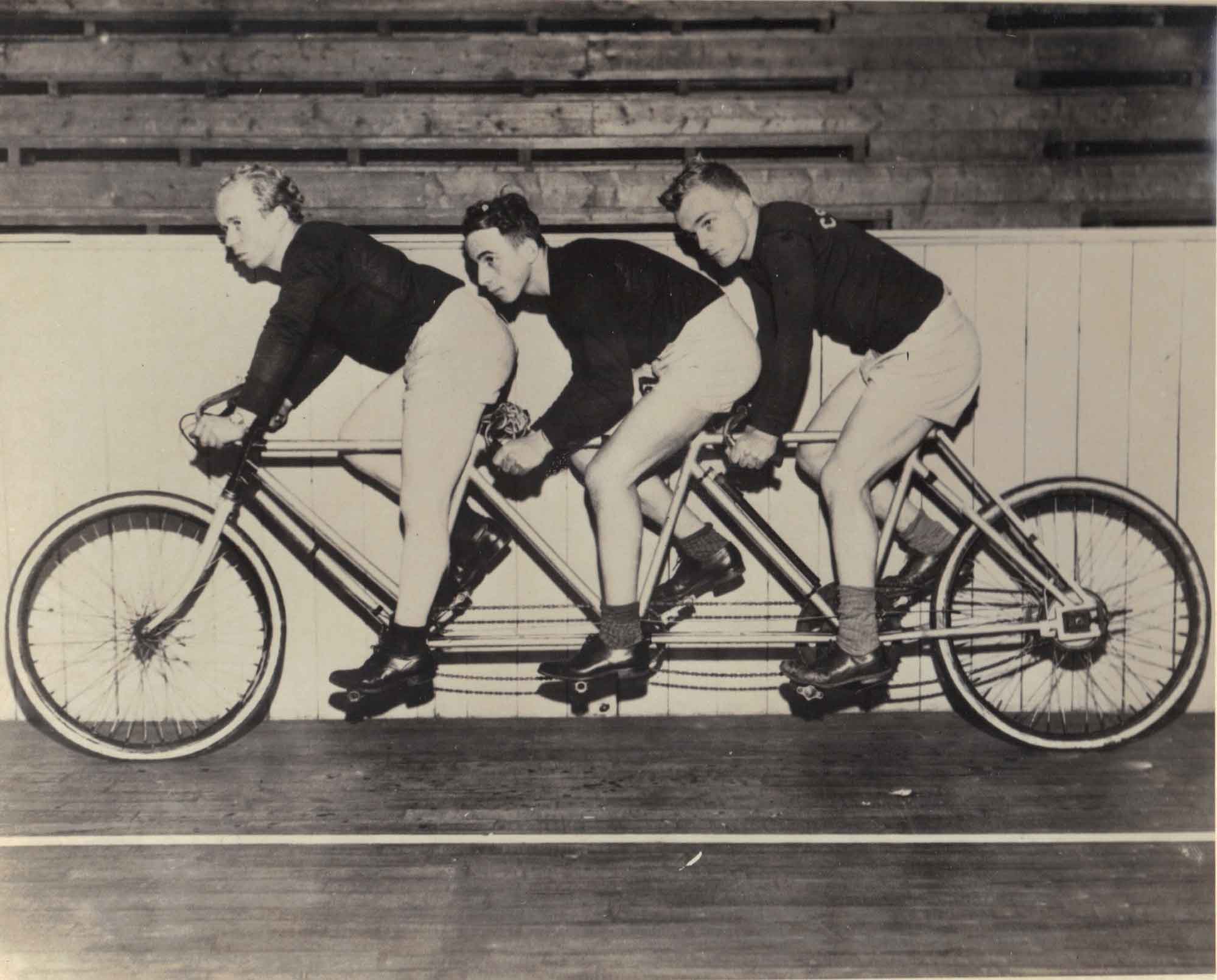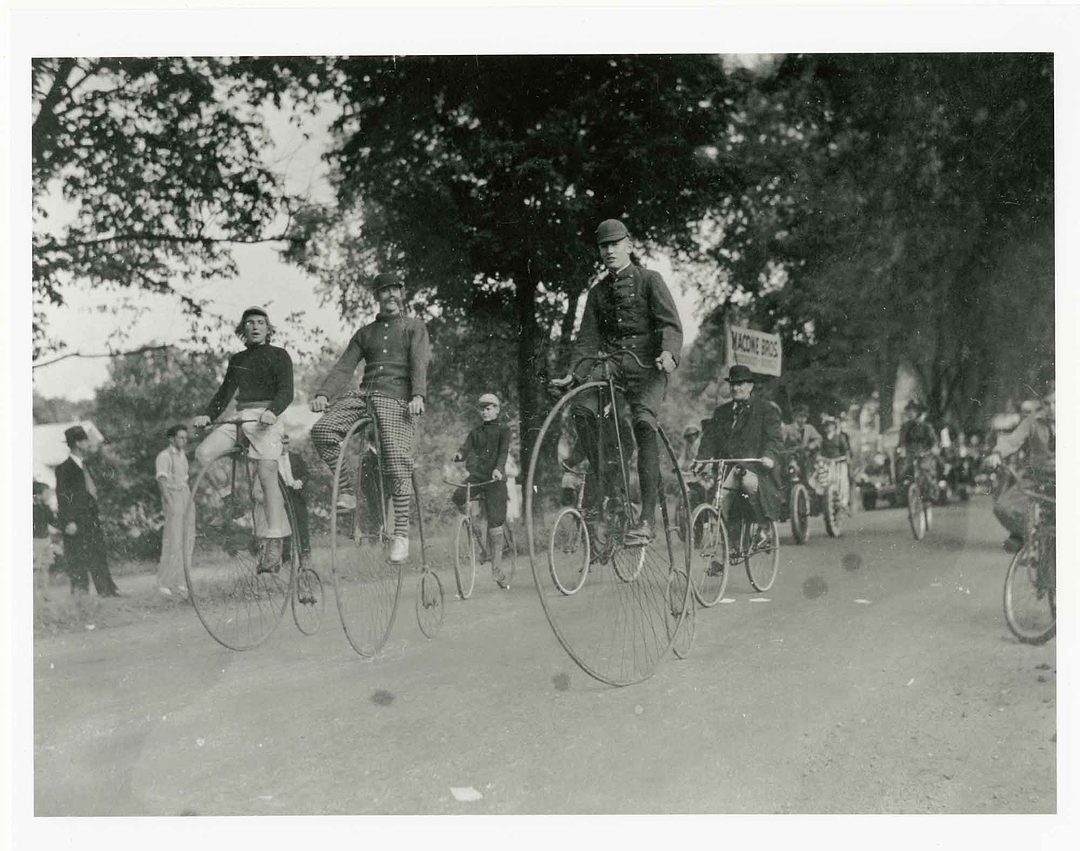The picturesque town of Concord, Massachusetts, is renowned for its rich history, from the Revolutionary and Civil War eras to its prominent role in American literature. Few may know that Concord played a role in the history of bicycling, a form of transportation that has had a profound impact on society and culture.
The bicycle has its roots in the early nineteenth century. By the 1870s the “high wheeled” or “ordinary” bicycle was introduced to America. Although difficult to ride and dangerous on poor, muddy roads, “ordinaries” became popular with middle- and upper-class Americans seeking fresh air and recreation away from increasingly urbanizing cities. Excursions by ‘cycling tourists’ from Boston to scenic rural Concord were aided by maps created for the League of American Wheelmen (the LAW).
By the 1880s, cycling was ‘democratized’ by the invention of the “safety bicycle” with wheels of equal size and rubber tires. The “safety” ushered in a new era of personal transportation for Americans of all incomes.
By the 1890s, bicycling’s first golden age was in full bloom. The ingenuity and manufacturing might of Massachusetts’ factories, the ‘LAW’ in Boston, enthusiastic Concord merchants, the ‘Good Roads Movement’ of the 1890s (which sought to improve and expand America’s mostly rural and rutty roads), and the ‘need for speed’ became a vital part of American culture.

The Macone brothers of Concord on a triplet bicycle
| Courtesy of Paul MaconeThe bicycle craze quickly spread to Concord. The first recorded bicycle race in Concord took place in 1879; one of the earliest organized bicycle races in the country. A thriving cycling scene in Concord was reported in local newspapers. Reports of races, cycling-related social events and clubs, and social commentary about the advantages and ills of cycling (particularly for women) were printed. Cyclists from Boston and its suburbs flocked to Concord for its beauty, history, and amenities. On April 19, 1896, more than 4,000 bicyclists arrived in Concord to celebrate Patriots’ Day!
Women embraced the freedom and independence that bicycles offered. Bikes provided an opportunity for independent travel and physical activity. Cycling became a symbol of women’s liberation. In an 1896 interview, Susan B. Anthony said, “I’ll tell you what I think of bicycling …. I think it has done more to emancipate women than any one thing in the world.” Concord’s merchants sold bicycles, bicycling-related clothing, and accessories to encourage Concord’s emerging middle-class women to ‘jump on a wheel.’ Cycling’s role in the evolution of women’s clothing as well as women’s suffrage cannot be understated.
As the twentieth century dawned, the popularity of bicycles waned. The automobile emerged as the dominant form of transportation in the United States. During 1970’s “second great bicycle boom,” Concord’s scenic roads were rediscovered, and the town became a popular destination for recreational cycling. In more recent years, there has been a resurgence of interest in bicycles for sustainable and healthy transportation, recreation, and sport.
Today, Concord is beloved by cyclists for its extensive network of scenic, bikeable roads, wooded off-road trails, and the Bruce Freeman Rail Trail, which attract cyclists from the world over.
The web is full of lists of favorite cycling roads and trails. You might start with these to get a feel for what’s available:


